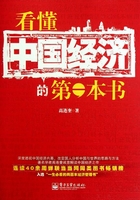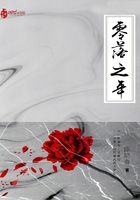The dissenting opinions were printed in enormous numbers by Republican committees and distributed among the anti-slavery people of the Northern and Middle States. Far from settling the controversy, the powerful conflicting opinions confirmed the already inveterate prejudices and disclosed with scientific clearness the fact, long dimly felt, that there existed two fundamentally different and irreconcilably hostile theories of government among the people which must sooner or later grapple for the mastery. Naturally among Northern Democrats the first emotion on hearing of the decision was exultation over the disastrous reverse suffered by the Republicans, whose whole political creed seemed annihilated. They had declared in sounding phrase that it was the duty of Congress to wipe from the Territories those twin relics of barbarism, slavery and polygamy;and promptly the Supreme Court had decided that Congress had no such power. But it soon grew uncomfortably clear to them that while the decision upset the favorite dogma of the Republicans, it was utterly inconsistent with the doctrine of popular sovereignty, the fundamental tenet of Northern Democratic faith. The decision was not only a victory of the Democrats over the Republicans, but a complete victory of the Southern slave-holding Democracy over that of the free North.
To Douglas the situation in which this left his party was disastrous.
Restlessly active and efficient as he had been in the practical management of political affairs, his distinctive achievement had been the powerful advocacy of the doctrine of popular sovereignty, of which, if not the original author, he was at least the chief sponsor. With this doctrine his fame as a statesman was indissolubly linked. On its success the unity of the Northern wing of his party depended; on which hung his hopes of victory.
Two days before the opinion was announced President Buchanan in his inaugural address reminded the people that the great question which had agitated them so long would soon be settled by the Supreme court and bespoke general acquiescence in its decision.
This unhappy allusion gave rise to the unpleasant suspicion that the relation between the new President and the Supreme Court in their common service of the South was unduly intimate.
Had Douglas been great enough to sink the politician in the statesman, he would now have broken with the Southern wing of his party, which had contemptuously repudiated his entire system of political doctrines; he would have rejected the new dogma imposed upon his party by the Southern dictators and led the assault upon this new creed, which was not only fatal to himself as a National statesman, but could not fail ultimately to prove fatal to his party and involve his country in the horrors of civil war. His squatter sovereignty was pitiful enough. But this new doctrine, announced by the Supreme Court, and approved by the President and his party, stripped the settlers in the Territories of all semblance of sovereignty and planted slavery among them by the self-acting energy of the Constitution, in utter disregard of their wishes.
On the most important question then pending his party had reached a conclusion which he believed to be utterly wrong. But it was his opinion that moral ideas had no place in politics. He could not break with the powerful party which he had led so long. He could not unqualifiedly endorse the new doctrine without stultifying himself. He attempted the impossible task of reconciling the new creed with that which he had preached in the past.
The United States Grand Jury at Springfield invited him to address the people of that city on the questions of the time. He spoke on the 12th of June, 1857, to a large and enthusiastic audience. He assured the people that he cordially accepted the decision and that it was in perfect harmony with his favorite doctrine of squatter sovereignty. The master's right to his slave in the Territories he admitted was guaranteed by the Constitution and neither Congress nor the legislature could interfere with it; yet practically this right was worthless unless sustained, protected and enforced by appropriate police regulations and local legislation prescribing adequate remedies for its violation. These regulations and remedies must depend entirely upon the will and wishes of the people of the Territory, as they could only be prescribed by the local legislature. Hence, the great principle of popular sovereignty and self-government was sustained and firmly established by the authority of the decision.
Perhaps, as pointed out by a recent historian, it would have been wiser for Douglas to have planted himself on the sound legal proposition that the only question decided by the Court was that it had no jurisdiction of the cause and that everything in the opinion beyond this was mere obiter dicta determining nothing.
But it was no easy matter for a politician in 1857 to explain to a popular audience that a small fraction of the opinion of the highest Court was binding, while the remainder was merely the private opinion of the Judges on a matter not before them. Had Douglas been defending his opinions before a bench of trained jurists he might have safely rested his case on this sound but technical rule. He afterwards did so justify his opinions in the Senate. An experience politician determined to carry a popular election in a dangerous crisis might well hesitate to attempt so doubtful an experiment.
History would have less temptation to call him a demagogue had he pursued that course. But we may well doubt whether, considered as a problem of practical politics, he was not wise in depending on his ingenious sophistry, rather than on this sound legal proposition.
Two weeks after his speech Lincoln addressed the people of Springfield in reply, pointing out the fallacy of Douglas' chief argument. But Lincoln was still an obscure lawyer; Douglas was the omnipotent Senator whose ipse dixit was final and carried conviction to the uncritical multitude.















